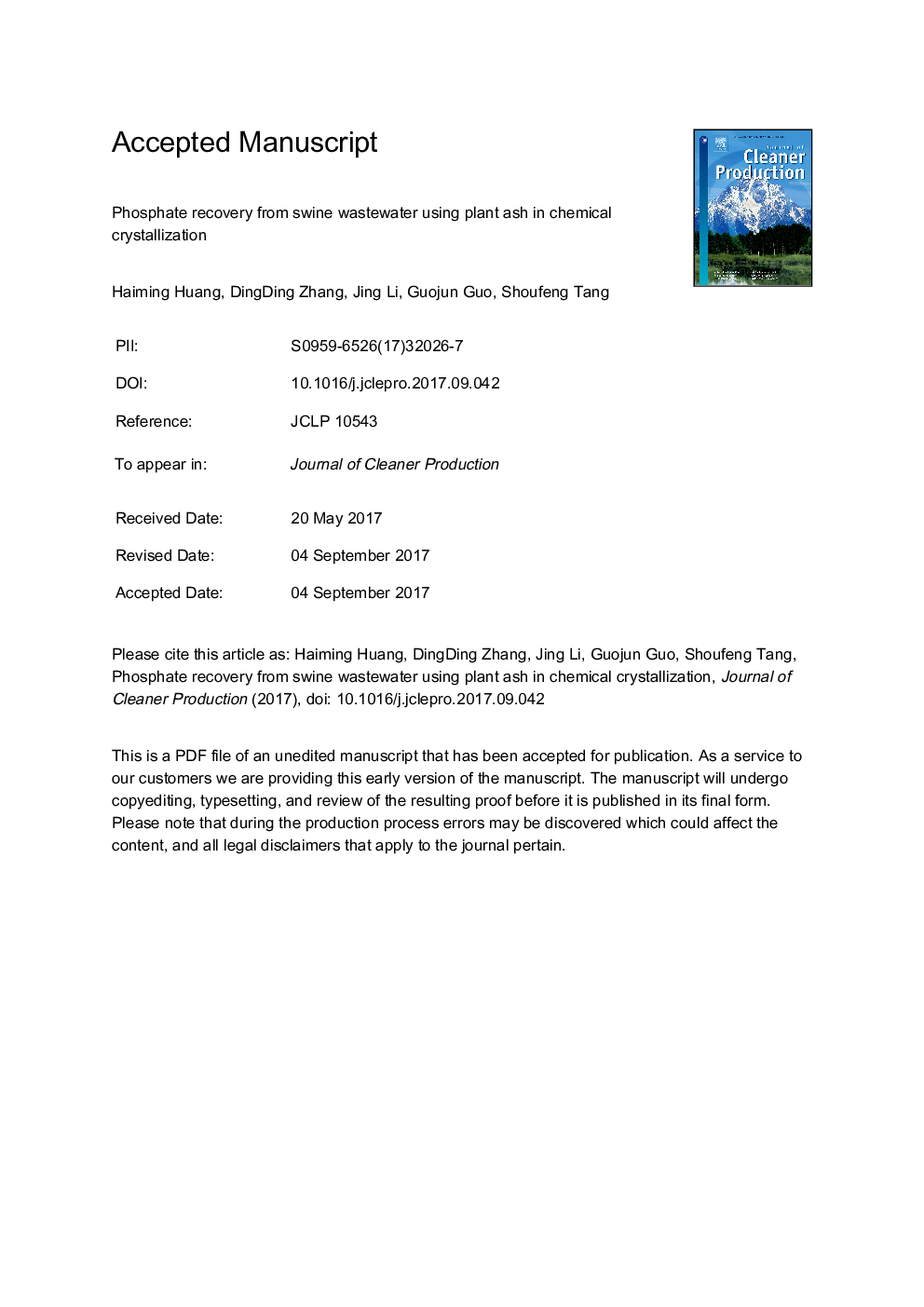| Article ID | Journal | Published Year | Pages | File Type |
|---|---|---|---|---|
| 5479805 | Journal of Cleaner Production | 2017 | 26 Pages |
Abstract
Phosphate is an important non-renewable resource. Over the recent years, due to the rapid explosion in world population the demand for phosphate fertilizer for use in grain production is burgeoning, resulting in the phosphate resources becoming increasingly scarce. Therefore, phosphate recovery from wastes has been drawing much attention. In this study, an attempt was made to recover phosphate from swine wastewater through struvite crystallization using plant ash as the alkali reagent. An increase in the solution pH and potassium concentration induced a drop in the struvite purity and a corresponding rise in the K-struvite purity. The maximum K-struvite purity was obtained at pH 10. The competitiveness of the K-struvite formation induced a significant relationship with the potassium concentration. When the K is to TAN molar ratio was 6, the competition ratio between the K-struvite and struvite reached 93.7%. The experimental results with actual wastewater revealed the feasibility of utilizing plant ash as the alkali reagent in struvite crystallization. Under optimal conditions, Ë96% of phosphate could be recovered from swine wastewater. An economic analysis revealed that the recovery cost of the proposed process was 1.27 $/kg PO4-P, which includes the costs incurred for chemicals, energy, manpower and maintenance. In fact, 0.31 $/kg PO4-P can be saved with the proposed process compared to the one using NaOH.
Related Topics
Physical Sciences and Engineering
Energy
Renewable Energy, Sustainability and the Environment
Authors
Haiming Huang, DingDing Zhang, Jing Li, Guojun Guo, Shoufeng Tang,
